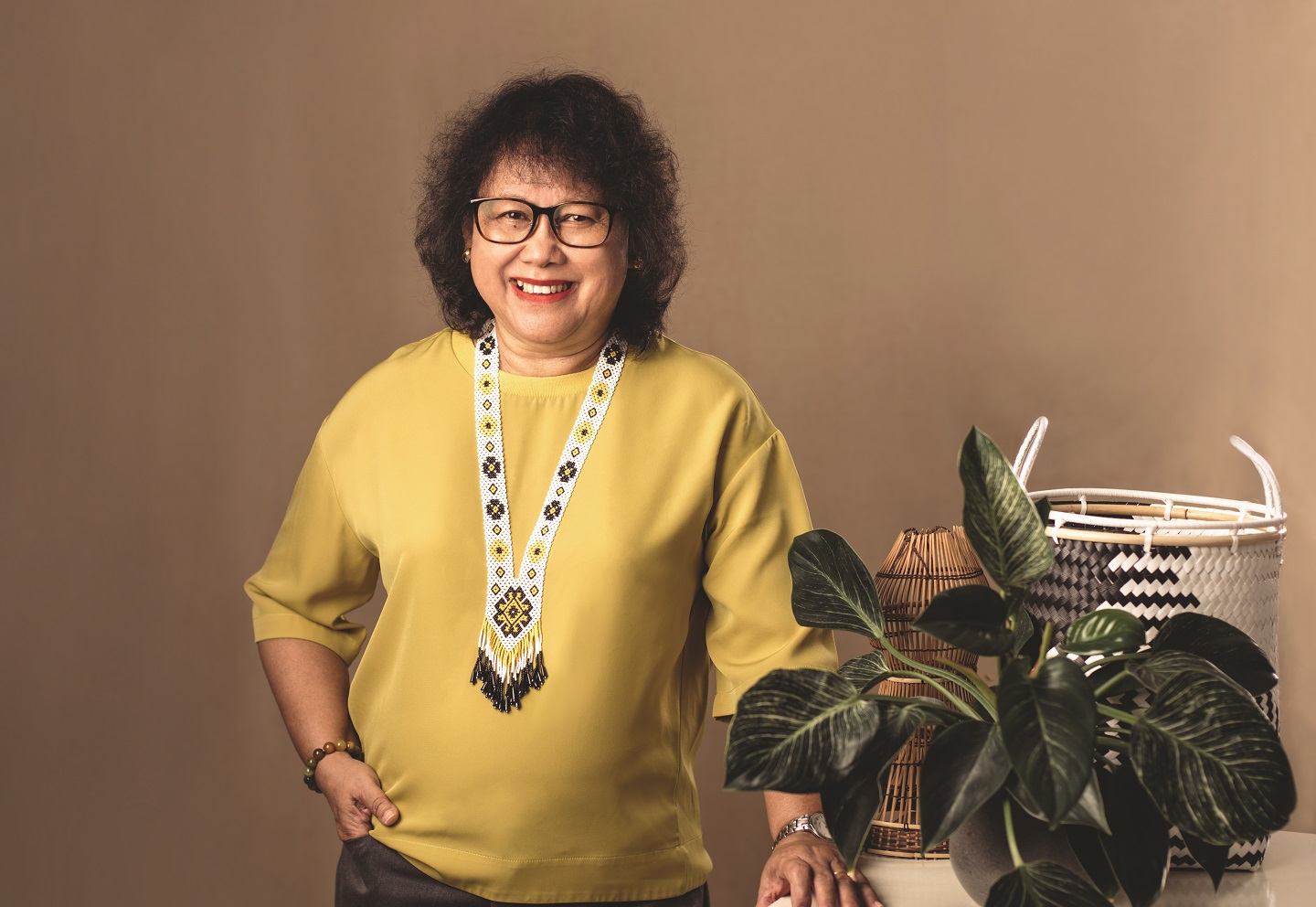
Margaret Bedus has been the president of the Sarawak Women for Women Society since 2000 (Photography by Andy Phe)
If there is one word to describe Margaret Bedus, “steadfast” may be it. She taught home science and English for almost 34 years at St Teresa’s in Kuching, one of Malaysia’s oldest and most established mission schools.
Margaret’s remarkable tenure attests to a dedication rarely seen today, and one would think that a well-earned, leisurely retirement would be on the cards after she closes her books. Instead, the 65-year-old mother of two has devoted her time to another role, that of championing the rights and safety of women and children.
Not quite the full-time housewife that she humbly refers to herself as, Margaret is president of the Sarawak Women for Women Society (SWWS), a position she has held since 2000. But she has been with the non-profit organisation far longer — 35 years to be exact — having joined as a pioneering member in 1985, barely a year after its inception.
Founded by a group of friends who saw an urgent need for a women’s non-governmental organisation in Sarawak, the initial focus of SWWS — then led by founding president Hew Cheng Sim — was to do something about the lack of support for women who were victims of sexual violence.
Margaret, invited by a friend, walked in during one of the group’s early meetings at a member’s home and her curiosity was piqued as to what they were up to. “We did spend a lot of our early meetings talking about how to name our society,” she laughs.
“To this day, whenever I go up on stage to receive cheques or grants, when our name is called, people would always look and wonder what kind of group ours is. They find it very unique.”
Asked if there was a moment when she felt a “calling” to this work, Margaret’s measured reply comes across as somewhat underwhelming, albeit profound in hindsight. “I just thought this was something I could do to help.”
The members’ collective desire to support other women has put the organisation at the forefront of society and made it a voice of authority on women’s and children’s issues in Sarawak. It is a member of the Joint Action Group (JAG) coalition, which comprises civil society organisations advocating for gender equality.
Margaret says at the start, SWWS’ focus was on addressing the myths and realities surrounding sexual violence, a prevalent problem with little recourse for victims then. In addition to awareness talks and educational programmes, it launched a crisis phone line in 1988 for rape victims, and eventually extended the service to those suffering domestic abuse.
The phone service quickly became a fundamental part of the organisation’s work. It provided a first point of contact and a “listening ear” to women in distress. Run entirely by volunteers trained as para-counsellors, the service allowed them to widen their reach to women across Sarawak, even in the rural areas.
“We never give advice. It is about giving information and going through their options with them.
“Some need legal information while others may have moved to a new town recently and do not know where to turn with their marital problems. In more serious cases of domestic violence, if the victim expresses a willingness to meet, our volunteers will move towards face-to-face meetings and accompany them to the police station or legal aid bureau,” Margaret says.
---
For the full story, pick up a copy of The Edge Malaysia (Aug 10, 2020) at your nearest news stand. Save by subscribing to us for your print and/or digital copy.


